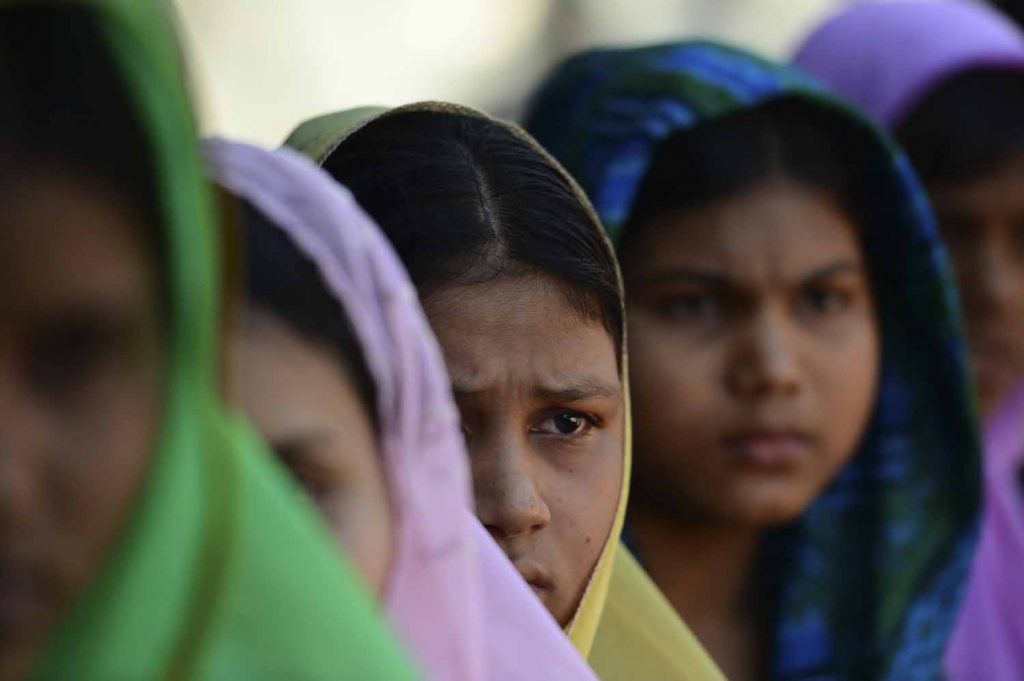AFP photo
By
Sheuli Akter
Since October 2016, an estimated 74,000 Rohingya people from Myanmar have arrived in Cox’s Bazar District, some 292 km southeast of Bangladesh’s capital Dhaka.
Shelter, food and non-food items (cooking sets, clothes, bedding and mosquito nets), health services are limited, access to water, sanitation and hygiene (WASH) facilities are over-stretched in the makeshift settlements and host communities. Nearly 3.3 per cent of the newly arrived are unaccompanied minors and are at risk of child marriage, exploitation and labour.
To extend humanitarian support to the recent influx of people from Myanmar in Bangladesh Cox’s Bazar, Japan provided Emergency Grant Aid of US$2 million through the International Organization for Migration (IOM – US$1 million), the Office of the United Nations High Commissioner for Refugees (UNHCR – US$0.5 million) and the United Nations Children’s Fund (UNICEF – US$0.5 million), UNICEF said here Monday.
The grant is aimed at strengthening the ongoing UN humanitarian and Government of Bangladesh’s support to the displaced persons (DP).
The Emergency Grant Aid will address the severe humanitarian condition of this population by providing them psychosocial support, shelter, non-food items, health services, water and sanitation, and protection.
“With the increasing influx of DPs in the host communities and the makeshift settlements, the services and resources are falling short, children bearing the biggest brunt”, said Edouard Beigbeder, UNICEF Bangladesh Representative.
Appreciating the Government of Japan’s timely intervention he continues, “We want all children from all communities to get basic education services and be protected from abuse, violence and exploitation. This grant will help us to complement education and protection services with health and wash emergency interventions for all children. This will prepare the children for a healthier life indispensable to their development and well-being.”
UNICEF, with support from the Government of Japan, will improve the social conditions and resilience of the DPs, especially the children, in the makeshift settlements and the host communities in Teknaf and Ukhiya of Cox’s Bazar district. The inclusive response will also benefit the Bangladeshis residing in the host communities.
UNICEF will ensure the fundamental right of every child to Health and WASH services. UNICEF will provide access to Maternal Neonatal Child and Adolescent Health (MNCAH) services for 61,822 under-5 children, 58,229 women aged 15-49 years and 2,000 adolescents living in host communities and makeshift settlements. This includes health facility readiness, new born and antenatal care interventions, age specific health information, education and services at the adolescent clubs, immunization, HIV, etc. UNICEF will also provide 45,300 people with access to improved WASH services by constructing and rehabilitating water points and latrines, promoting hygiene and hand washing devices and practices, and climate resilient WASH services.
Collaborating with the Government of Bangladesh, UNICEF further said UNHCR will distribute non-food items among 2,600 families seeking protection in the Kutupalong and Nayapara registered refugee camps which will be essential to help them survive during the upcoming rainy season.
Mr. Shinji Kubo, Representative, UNHCR-Bangladesh expressed his gratitude towards the Government of Japan for their timely emergency humanitarian response that plays an essential role in UNHCR’s life-saving endeavours. He further affirmed UNHCR’s commitment to continue its protection activities to be implemented with this Emergency Grant Aid.
With fund from the Government of Japan, IOM will ensure emergency needs of the recently arrived DPs and the existing caseload living in the makeshift settlements and host villages in Cox’s Bazar. IOM will provide shelter for the homeless DPs, provide them non-food items (cooking sets, clothes, bedding and mosquito nets) and access to Mental Health and Psychosocial Support (MHPSS). IOM aims to reducing the community’s vulnerability to possible gender based violence through awareness campaigns, focus group discussions, workshops and trainings on recognizing and addressing protection risks. More than 130,000 individuals will benefit from this funding.
“This funding will help IOM to scale up the much needed mental health interventions in the area with a specific focus on psychosocial support for women and children,” said Mr. Sarat Dash, the Chief of Mission of IOM Bangladesh acknowledging the support of the Government of Japan. “This partnership is crucial for us as it particularly supporting the changing needs of humanitarian assistance and protection in Cox’s Bazar,” he added.
Finally an additional focus will go towards ensuring strong coordination amongst all humanitarian actors to ensure the response is effective and duplications of effort are avoided.



No Comments Yet!
You can be first to comment this post!